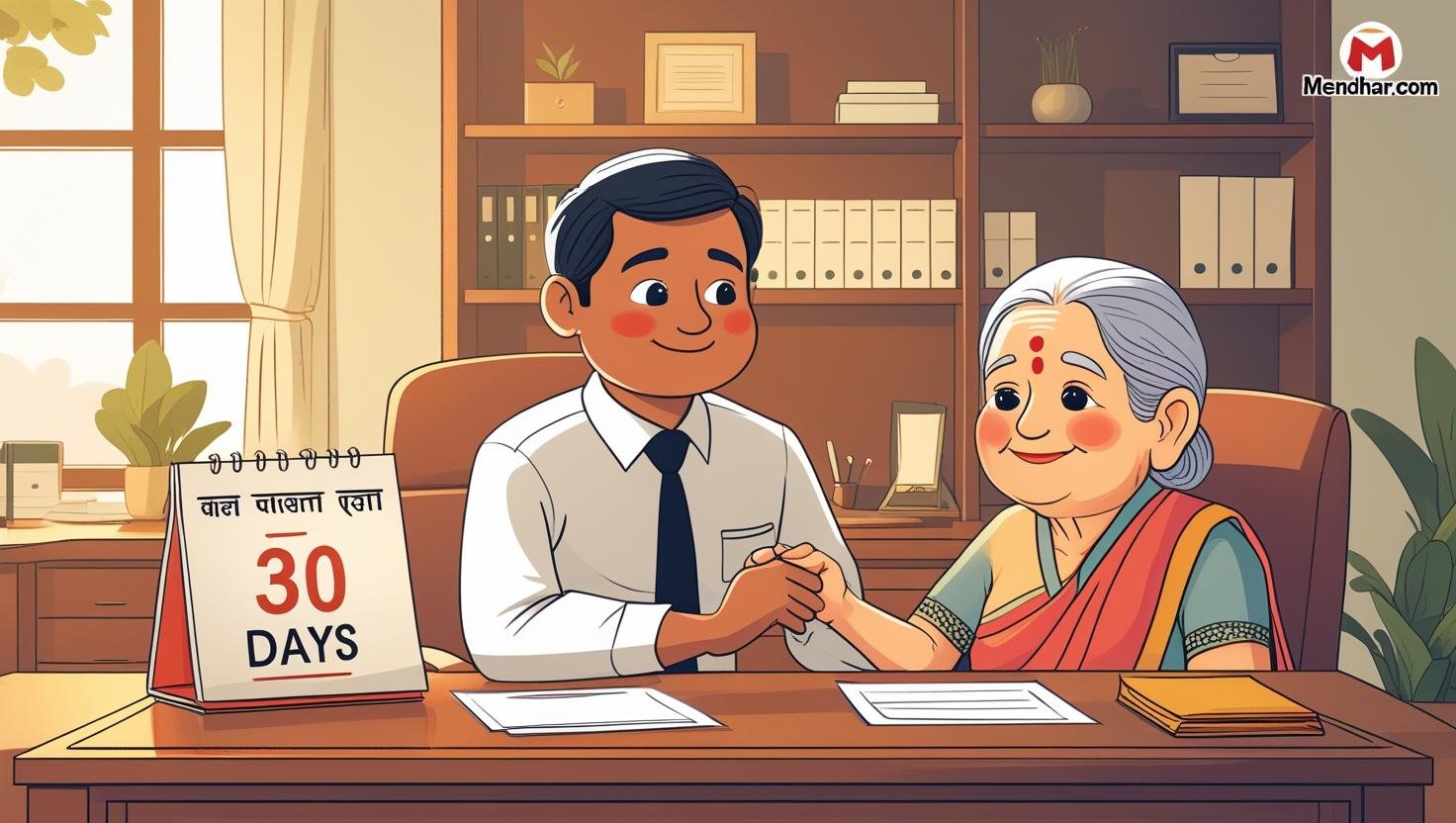Table of Contents
ToggleGovt Employees Can Now Take Leave for Elderly Care: New Policy Offers Flexibility
In a landmark step towards promoting a more compassionate and inclusive workplace, the Government of India has introduced a new provision allowing central government employees to take leave for the care of their elderly parents. Titled as a much-needed measure of support, this new policy reflects a thoughtful shift towards balancing professional responsibilities with personal and familial duties.

The topic, "Govt Employees Can Now Take Leave for Elderly Care: New Policy Offers Flexibility", has garnered attention across the nation. The new approach empowers employees to prioritize the wellbeing of their aging parents while offering emotional relief to thousands of caregivers in government service.
What Does the Policy Say?
The policy was officially addressed in the Rajya Sabha via Unstarred Question No. 607, answered on 24th July 2025. In response to a question raised by Smt. Sumitra Balmik, Minister of State Dr. Jitendra Singh confirmed that under the Central Civil Services (Leave) Rules, 1972, employees are entitled to:
- ✔️ 30 days of Earned Leave
- ✔️ 20 days of Half Pay Leave
- ✔️ 8 days of Casual Leave
- ✔️ 2 days of Restricted Holiday Leave
This adds up to 60 days of leave annually that can now be confidently availed for caring for elderly parents. It clearly proves how Govt Employees Can Now Take Leave for Elderly Care: New Policy Offers Flexibility in a practical and meaningful way.
The Human Touch in Governance
Many employees struggle with balancing work and caregiving. With India’s aging population, this policy sends a strong message: caregiving matters. It reflects that the government values not just performance, but also personal commitments.
Why Was This Policy Needed?
- 🧓 Rising Life Expectancy: People live longer, often needing continuous care.
- 🏠 Nuclear Families: Lack of joint family support increases the burden.
- 🧠 Mental Health: Caregiver burnout can be mitigated with time off.
This reinforces how Govt Employees Can Now Take Leave for Elderly Care: New Policy Offers Flexibility is a timely and essential move.
Comparison with Childcare Leave
This step puts eldercare on equal footing with childcare. Just as a child needs parental support, aging parents need their children too. It brings dignity and parity into family-focused governance.
How It Will Benefit Employees
- ✅ Reduced Stress: No more guilt over choosing between work and family.
- ✅ Improved Productivity: Mental clarity boosts focus at work.
- ✅ Better Work-Life Balance: Manage both worlds effectively.
- ✅ Inclusive Culture: Builds empathy and understanding at the workplace.
Call for Wider Implementation
Currently for central government employees, this should inspire state governments and the private sector to follow suit. Employees everywhere deserve such compassionate provisions.
Final Thoughts
In a country where family values are deeply embedded, this is a step in the right direction. This policy ensures caregiving is no longer seen as a burden, but a shared responsibility.
To conclude, Govt Employees Can Now Take Leave for Elderly Care: New Policy Offers Flexibility is not just a statement—it’s a movement toward a more humane, inclusive, and employee-first work culture.
Let’s hope more such reforms follow, making our workplaces kinder, more adaptable, and understanding of the lives of the people who serve this nation.
Frequently Asked Questions (FAQ)
1. What is the new elderly care leave policy for government employees?
The policy allows central government employees to take their existing eligible leave (Earned, Half Pay, Casual, and Restricted) for the care of their elderly parents. This clarification officially recognizes eldercare as a legitimate reason for availing leave.
2. How many total leave days are available annually for this purpose?
Central government employees are eligible for up to 60 days of leave annually — including 30 days Earned Leave, 20 days Half Pay Leave, 8 days Casual Leave, and 2 days Restricted Holiday Leave — all of which can be used for eldercare.
3. Is this a new category of leave?
No, it is not a new category. However, the clarification now officially recognizes elderly care as a valid reason under the existing leave rules, making the provision more employee-friendly.
4. Does this policy apply to state government or private sector employees?
Currently, this clarification is applicable only to central government employees. However, it sets a positive example for state governments and private companies to adopt similar policies.
5. How will this benefit employees in real life?
It reduces stress, promotes better work-life balance, and offers mental peace to employees who are responsible for caregiving. It encourages a compassionate and inclusive workplace culture.
6. Where was the policy clarification published?
The clarification was provided in the Rajya Sabha as part of Unstarred Question No. 607, answered on 24th July 2025 by the Minister of State, Dr. Jitendra Singh.


